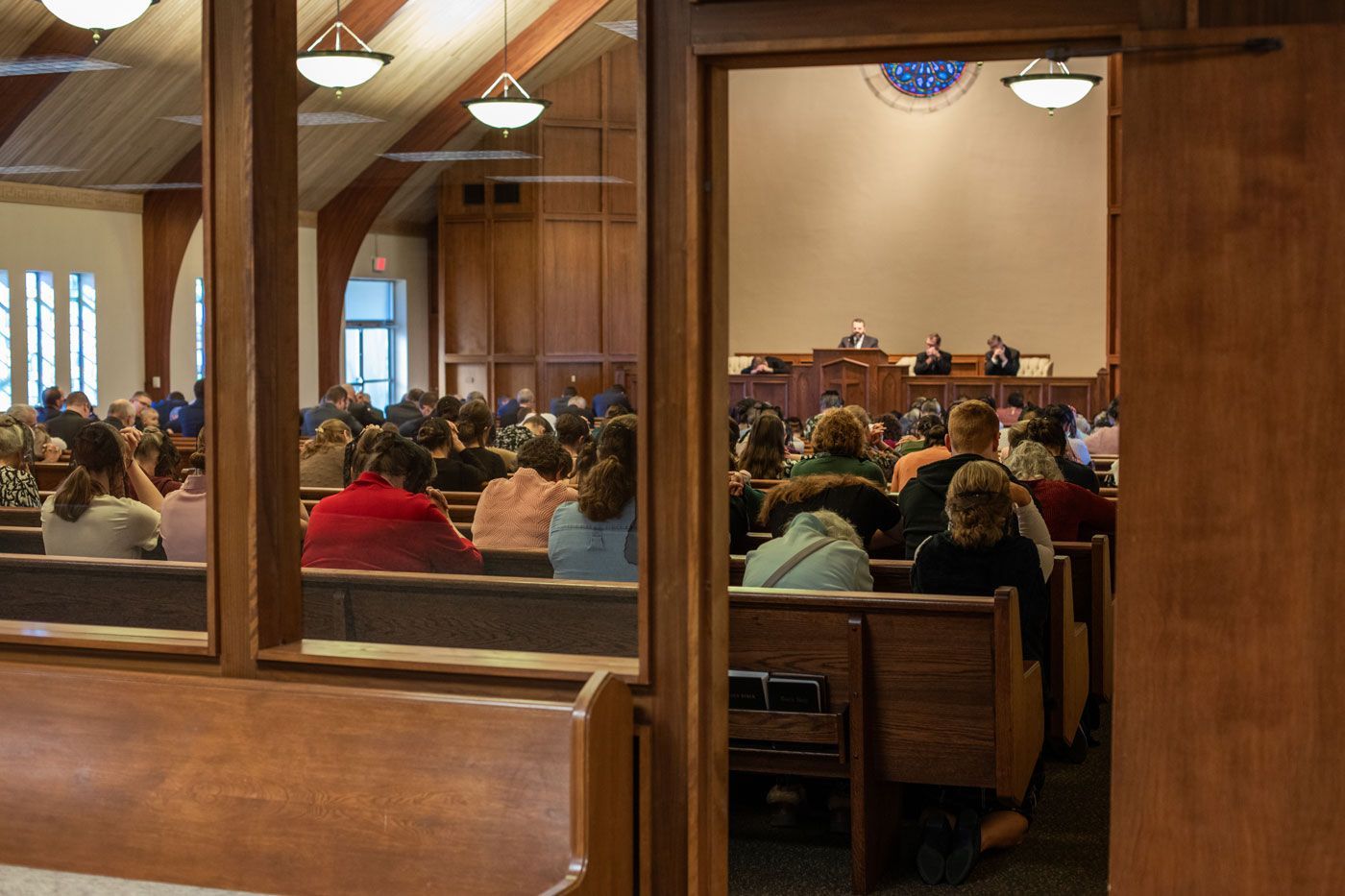Emerging Technology
"For God hath not given us the spirit of fear; but of power, and of love, and of a sound mind."
2 Timothy 1:7

Introduction
This month's article is an update on how the Elder Body is seeking to be aware of and provide teaching on emerging technologies. Long ago, Paul exhorted the Ephesian believers to be careful how they lived, and to be wise because the days are evil.[1] In our time, it can seem increasingly complicated to live wisely amid the accelerating pace of new technologies.
The Elder Body is actively working to better understand emerging technologies so that we can offer guidance in the wise use of technology. In a world fraught with sensationalized headlines, we want the church to be equipped to navigate emerging technologies with discernment rather than fear. We are reminded of Paul's encouragement to Timothy, “For God hath not given us the spirit of fear; but of power, and of love, and of a sound mind.”[2]
Emerging technologies such as artificial intelligence (AI), digital currency, the Metaverse, genetic engineering, and more present both opportunities and challenges that require wise consideration. Some of us are more connected to these technologies than others, and some of us may feel vulnerable or fearful. Yet God is over all, and the Holy Spirit is able to help us respond wisely.
The Impact of Technology
In the early days of the Internet, there was much uncertainty about its usefulness and the dangers it posed. However, today it is hard to imagine life without it. Many of us utilize it for work, household tasks, family conversations, and even things related to church, such as announcements, elder meetings via video calls, and listening to streaming AC sermons. Although there are negative aspects to technology, most of us have adopted the benefits of these advancements over time.
Paul instructed the Thessalonians to, “Prove all things; hold fast that which is good.”[3] We want to teach how to examine the impact of a given technology carefully, identifying what is helpful and what may be risky. Most technologies bring both good and evil. Rather than issue a blanket prohibition, we want to teach discernment while sounding early and clear warnings of spiritual dangers.
Considering the Internet again, some embraced its benefits unaware of dangers such as exposure to sexual content or theological confusion, not only to their own detriment, but often impacting their children. We may now be aware of these particular risks, but unaware of the risks of the next emerging technology. We intend to provide proactive guidance and warnings so that we can be “wise as serpents” as we begin to use new technologies.[4]
Technology is a Tool
Technological advancements are neither inherently good nor evil. They are tools. Looking back at history, we can observe how simple technologies have been utilized for good and evil:
- Knives (an ancient technology) help feed people and aid in essential work but can also be used for harm.
- The printing press enabled knowledge to be widely shared and God’s Word to spread to millions of people, but equally enabled harmful information and propaganda to be shared.
- Smartphones provide access to helpful content such as the Bible in numerous translations, and apps like AC Central, but also allow easy access to evil apps and content.
Emerging technologies present opportunities and challenges. We must prayerfully understand the benefits and dangers. One of the guiding principles of Onward Media is to, “Harness technology: technology is a neutral tool that can be used for good or evil. When it can be practically used in a God-honoring way, we will adopt it.”
An example of technology as a neutral tool is in this very article. This paragraph has been drafted by an AI language model, ChatGPT. It demonstrates how AI can be a useful tool in achieving certain objectives, such as enhancing our communication and sharing of ideas.
-------------------------------------- Continued portion below --------------------------------------
Worldview vs. Technology
When considering technology, it is tempting to associate it with particular beliefs or worldviews. However, it is important to differentiate between the tool itself and the belief system held by some proponents of a given tool. We can evaluate the risks and benefits of the tool while also discerning and avoiding the dangers of a false belief system.
For instance, fields such as genetics and artificial intelligence offer potential benefits for humanity such as improved health. However, we must be cautious of thought patterns that can emerge from these fields, such as the view that humanity can achieve immortality on its own. We know that our true hope lies in the promise of eternal life through faith in the resurrected Christ.[5] Additionally, discussions arise around the possibility of ascribing personhood to machines. This could lead to giving them similar value to humans, who alone are created in the image of God. Each of these worldviews is distinct from the technology itself. By understanding this distinction, we can better evaluate and use these tools in a manner consistent with our faith and God’s Word.
A Closer Look at Artificial Intelligence
Artificial intelligence, such as ChatGPT has been a major topic in the news over the last year. As ChatGPT and other AI technologies gain prominence, they offer beneficial opportunities for dealing with complex and overwhelming quantities of information, streamlining processes, gaining insights, and making better decisions. However, they also raise ethical and spiritual questions that should be addressed.
- AI can help us quickly access and summarize information on a range of subjects including spiritual topics. Just as we exercise caution when absorbing information from search engines or websites, we must exercise caution with responses from AI and carefully discern what is accurate and true.
- AI can appear to understand and infer human mental states like beliefs and emotions. However, it doesn't truly grasp human emotions or consciousness and excels only at specific tasks within its training data. Just as it is unwise to develop an emotional connection to an unknown person through technology, it is foolish to use AI as a replacement for a human friendship
- As AI advances, it is important to remember that humans are uniquely created in the image of God with eternal souls. This helps us stay grounded amid fears about AI developing “consciousness,” overstepping boundaries, or outpacing human intelligence.
For those who utilize AI, let’s consciously think through our purposes. Are we using AI to avoid doing hard things, and inadvertently choosing to outsource our thinking? Which activities can be outsourced to AI without compromising our spiritual well-being? Do some activities contribute to our physical, emotional, and spiritual development as individuals made in the image of God, and therefore should not be outsourced?
The issues related to emerging technologies are real and will impact us. Grounded in scripture and guided by God’s wisdom, we can navigate the complexities of emerging technologies. Wisdom in embracing advancements for good, while being mindful of their potential dangers, helps ensure our engagement with technology reflects our faith and values. In all aspects of our lives, we should seek to honor God and exalt the name of Jesus to his glory.
[1] Ephesians 5:15-16
[2] 2 Timothy 1:7
[3] 1 Thessalonians 5:21
[4] Matthew 10:16
[5] 1 Peter 1:3-4
[6] Colossians 3:17









